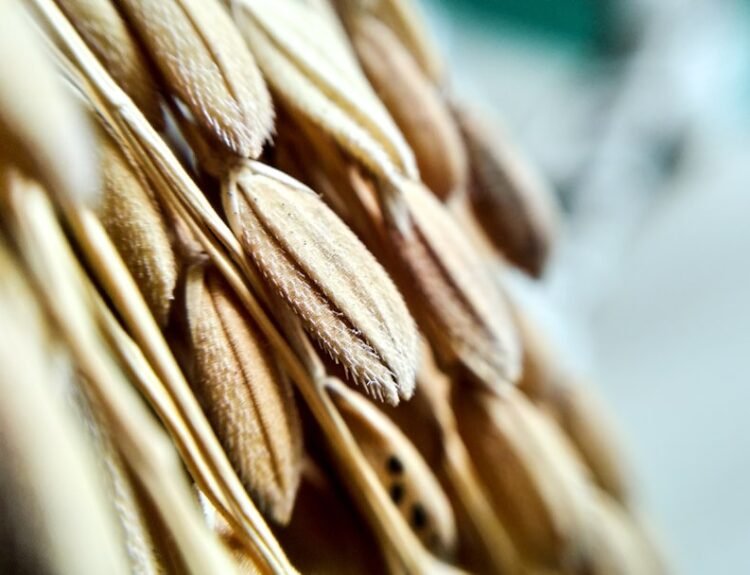High blood pressure, or hypertension, is a prevalent health condition that affects millions of individuals worldwide. It is often referred to as a “silent killer” because it typically presents no obvious symptoms, yet it can lead to severe health complications if left unmanaged. The condition occurs when the force of blood against the walls of the arteries is consistently too high, which can strain the heart and damage blood vessels over time.
According to the World Health Organization, an estimated 1.13 billion people globally have hypertension, and many are unaware of their condition. This lack of awareness underscores the importance of regular health screenings and monitoring. Hypertension is classified into two main categories: primary (essential) hypertension, which develops gradually over many years, and secondary hypertension, which is caused by an underlying condition such as kidney disease or hormonal disorders.
The risk factors for developing high blood pressure include age, family history, obesity, sedentary lifestyle, excessive salt intake, and chronic stress. Understanding these factors is crucial for prevention and management. The consequences of uncontrolled hypertension can be dire, leading to heart disease, stroke, kidney failure, and other serious health issues.
Therefore, addressing high blood pressure through various means is essential for maintaining overall health and well-being.
Importance of Lowering Blood Pressure Naturally
Lowering blood pressure naturally is not only beneficial for immediate health but also plays a significant role in long-term wellness. Many individuals are prescribed medications to manage hypertension; however, these drugs can come with side effects and may not address the root causes of the condition. By adopting natural methods to lower blood pressure, individuals can often achieve better control over their health without the adverse effects associated with pharmaceutical interventions.
Natural approaches can also complement medical treatments, enhancing their effectiveness and potentially allowing for lower dosages of medication. Moreover, natural methods for lowering blood pressure often promote overall health improvements beyond just managing hypertension. For instance, dietary changes that reduce blood pressure can also lead to weight loss, improved cholesterol levels, and better blood sugar control.
Similarly, regular physical activity not only helps in lowering blood pressure but also enhances cardiovascular fitness and mental well-being. By focusing on holistic lifestyle changes, individuals can create a sustainable path toward better health that reduces reliance on medications and fosters a greater sense of empowerment over their health choices.
Dietary Changes to Lower Blood Pressure

Diet plays a pivotal role in managing high blood pressure, and certain dietary changes can significantly impact blood pressure levels. One of the most well-researched dietary approaches is the DASH diet (Dietary Approaches to Stop Hypertension), which emphasizes the consumption of fruits, vegetables, whole grains, lean proteins, and low-fat dairy products while reducing sodium intake. Studies have shown that individuals who adhere to the DASH diet can experience notable reductions in their blood pressure within just a few weeks.
The diet’s focus on potassium-rich foods—such as bananas, sweet potatoes, and spinach—helps counteract the effects of sodium and supports healthy blood vessel function. In addition to following the DASH diet, reducing sodium intake is crucial for those with hypertension. The American Heart Association recommends limiting sodium consumption to no more than 2,300 milligrams per day, with an ideal limit of 1,500 milligrams for most adults.
This can be achieved by avoiding processed foods, which often contain high levels of hidden sodium, and opting for fresh ingredients instead. Cooking at home allows individuals to control the amount of salt added to meals. Incorporating herbs and spices as flavor enhancers can also reduce the need for salt while adding nutritional benefits.
Exercise and Physical Activity for Lowering Blood Pressure
| Study | Duration | Participants | Exercise Type | Reduction in Blood Pressure |
|---|---|---|---|---|
| Meta-analysis by Cornelissen et al. (2018) | 12-24 weeks | Adults with hypertension | Aerobic exercise | 4-6 mmHg systolic, 2-3 mmHg diastolic |
| Study by Pescatello et al. (2015) | 16 weeks | Adults with prehypertension | Resistance training | 3-4 mmHg systolic, 3 mmHg diastolic |
| Review by Whelton et al. (2002) | N/A | Adults with hypertension | Combined aerobic and resistance exercise | 5-7 mmHg systolic, 3-5 mmHg diastolic |
Regular physical activity is one of the most effective ways to lower blood pressure naturally. Engaging in aerobic exercises such as walking, jogging, cycling, or swimming can help strengthen the heart muscle, improve circulation, and reduce overall body weight—all factors that contribute to lower blood pressure levels. The American Heart Association recommends at least 150 minutes of moderate-intensity aerobic exercise per week or 75 minutes of vigorous-intensity exercise.
Even small amounts of physical activity can yield significant benefits; studies have shown that just 30 minutes of moderate exercise most days can lead to reductions in systolic blood pressure by about 4-9 mmHg. In addition to aerobic exercise, incorporating strength training into a fitness routine can also be beneficial for managing hypertension. Resistance training helps build muscle mass and improve metabolic function, which can contribute to better blood pressure control.
Activities such as weight lifting or bodyweight exercises should be performed at least two days a week. Furthermore, flexibility exercises like yoga or tai chi not only enhance physical fitness but also promote relaxation and stress reduction—factors that are crucial for maintaining healthy blood pressure levels.
Stress Management Techniques for Lowering Blood Pressure
Chronic stress is a significant contributor to high blood pressure; therefore, effective stress management techniques are essential for those looking to lower their blood pressure naturally. Stress triggers the release of hormones such as adrenaline and cortisol, which can cause temporary spikes in blood pressure. Over time, persistent stress can lead to sustained hypertension if not addressed.
Techniques such as mindfulness meditation, deep breathing exercises, and progressive muscle relaxation have been shown to help reduce stress levels and promote relaxation. Mindfulness meditation encourages individuals to focus on the present moment without judgment, which can help alleviate anxiety and promote a sense of calm. Research has demonstrated that regular practice can lead to reductions in both systolic and diastolic blood pressure.
Deep breathing exercises involve taking slow, deep breaths to activate the body’s relaxation response; this simple technique can be practiced anywhere and at any time to help manage acute stressors. Additionally, engaging in hobbies or activities that bring joy—such as gardening, painting, or spending time with loved ones—can serve as effective outlets for stress relief.
Natural Supplements and Herbs for Lowering Blood Pressure

In addition to lifestyle changes, certain natural supplements and herbs have been studied for their potential effects on lowering blood pressure. One well-known supplement is omega-3 fatty acids, commonly found in fish oil. Research indicates that omega-3s can help reduce inflammation and improve heart health, leading to lower blood pressure levels.
A meta-analysis published in the American Journal of Hypertension found that omega-3 supplementation was associated with significant reductions in both systolic and diastolic blood pressure. Another promising natural remedy is garlic extract. Studies have shown that garlic can enhance nitric oxide production in the body, which helps relax blood vessels and improve circulation.
A review published in the journal Hypertension found that garlic supplementation led to an average reduction in systolic blood pressure by about 8-10 mmHg in individuals with hypertension. Other herbs such as hibiscus tea have also been linked to lower blood pressure levels due to their antioxidant properties and ability to promote vasodilation.
Lifestyle Changes for Lowering Blood Pressure
Beyond diet and exercise, several lifestyle changes can contribute significantly to lowering blood pressure naturally. One critical aspect is maintaining a healthy weight; obesity is a major risk factor for hypertension. Even modest weight loss—around 5-10% of body weight—can lead to meaningful reductions in blood pressure for overweight individuals.
This can be achieved through a combination of dietary modifications and increased physical activity. Another important lifestyle factor is limiting alcohol consumption. Excessive alcohol intake can raise blood pressure levels; therefore, moderation is key.
The American Heart Association recommends that men limit their alcohol intake to two drinks per day and women to one drink per day. Additionally, quitting smoking has profound benefits for cardiovascular health; smoking damages blood vessels and increases heart rate, both of which contribute to higher blood pressure levels. Support programs and resources are available for those looking to quit smoking.
Conclusion and Additional Resources
Managing high blood pressure naturally requires a multifaceted approach that encompasses dietary changes, regular physical activity, stress management techniques, natural supplements, and overall lifestyle modifications. By adopting these strategies, individuals not only work towards lowering their blood pressure but also enhance their overall health and quality of life. It is essential for those with hypertension or at risk of developing it to consult healthcare professionals before making significant changes to their health regimen.
For further information on managing high blood pressure naturally, resources such as the American Heart Association’s website provide valuable insights into dietary guidelines and exercise recommendations tailored for individuals with hypertension. Additionally, books focused on nutrition and lifestyle changes offer practical advice on implementing these strategies effectively. Engaging with healthcare providers or nutritionists can also provide personalized guidance tailored to individual needs and circumstances.
FAQs
What is high blood pressure?
High blood pressure, also known as hypertension, is a condition where the force of blood against the artery walls is consistently too high. This can lead to serious health issues such as heart disease, stroke, and kidney problems.
What are the natural ways to lower blood pressure?
Some natural ways to lower blood pressure include maintaining a healthy weight, exercising regularly, reducing sodium intake, increasing potassium intake, limiting alcohol consumption, managing stress, and following a healthy diet such as the DASH (Dietary Approaches to Stop Hypertension) diet.
How does exercise help lower blood pressure?
Regular physical activity can help lower blood pressure by strengthening the heart, improving blood flow, and reducing the workload on the heart. It can also help with weight management and stress reduction, both of which are important factors in controlling blood pressure.
What is the DASH diet?
The DASH (Dietary Approaches to Stop Hypertension) diet is a dietary plan designed to help lower blood pressure. It emphasizes consuming fruits, vegetables, whole grains, lean proteins, and low-fat dairy while limiting foods high in saturated fat, cholesterol, and sodium.
Can stress affect blood pressure?
Yes, stress can affect blood pressure. When stressed, the body releases adrenaline, which can cause the heart to beat faster and the blood vessels to narrow, leading to an increase in blood pressure. Managing stress through relaxation techniques, exercise, and other stress-reducing activities can help lower blood pressure.



